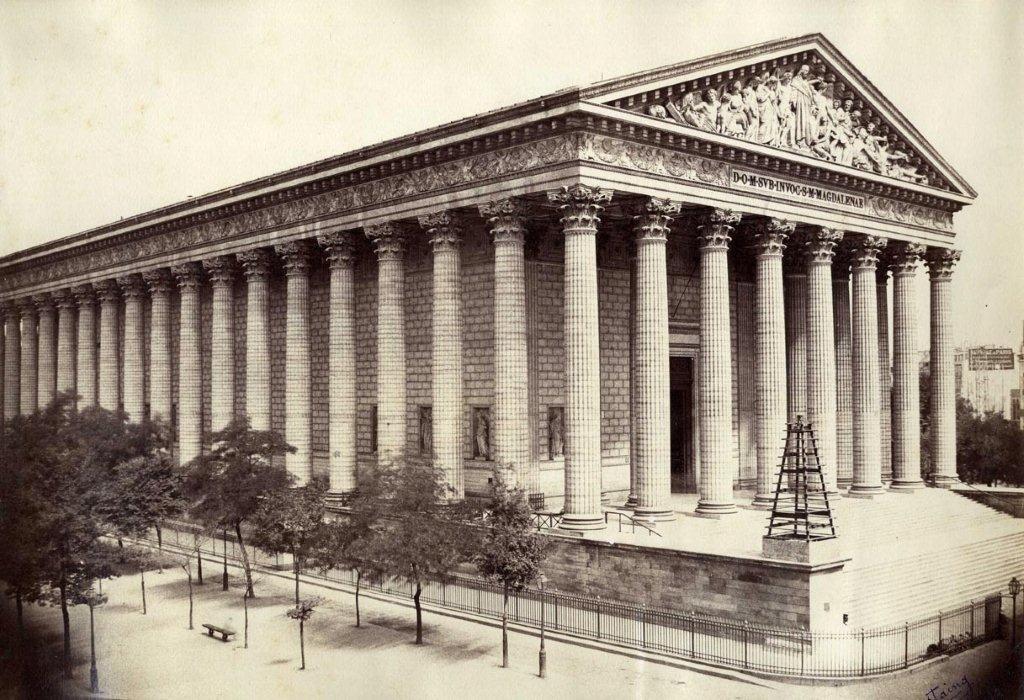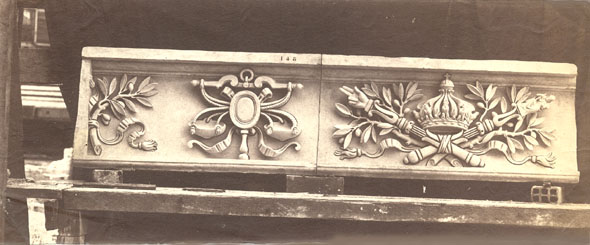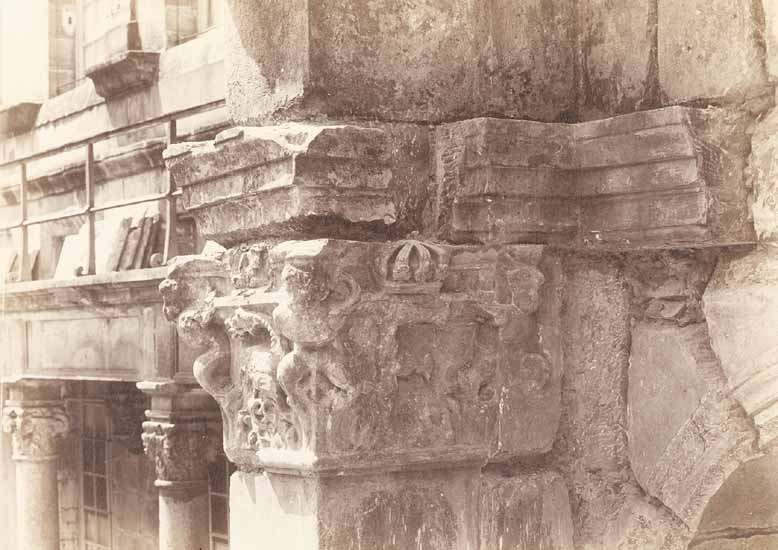Édouard Baldus was born June 5, 1813 in Grünebach, Prussia. Fleeing Prussia from a counterfeiting charge, he came to Paris to study painting in 1838, and had also worked as a draughtsman and lithographer before switching to photography in the late 1840s. He may have photographed in Provence as early as 1849. Baldus submitted work to each of the annual Salons of painting and sculpture in Paris from 1841 to 1851. He became a naturalized citizen of France in 1856.
Baldus expert Malcolm Daniel notes, "As a painter he met with little success and achieved no critical mention, but in the decade that followed, from 1851 to 1861, Baldus abandoned the easel and took up the camera, rose to the top of his new profession, won international critical acclaim, secured commissions from government ministries and captains of industry, and created a body of photographs now considered early masterpieces of the art."
In 1851 he was selected to be one of the photographers for the Mission Héliographique, a government-sponsored photography survey. Baldus was sent south, to Fontainebleau, through Burgundy, the Dauphiné and Lyonnais, Provence, and a small part of Languedoc. He subsequently won government support for a project entitled Les Villes de France photographiées, an extended series of architectural views in Paris and the provinces in 1852-54.
In August 1855, Baron James de Rothschild, who was president of the Chemin de fer du Nord (Northern Railroad), commissioned Baldus to produce an album of views along the rail route from Paris to Boulogne-sur-Mer for presentation to Queen Victoria, when she visited France later that very month. Baldus would draw a second commission in 1861 to document the route of the PLM railway from Lyon to Toulon. 1855 was an auspicious year for Baldus. Not only was he commissioned for his first railway album, but he exhibited at the Exposition Universelle in Paris and got highly positive reviews. He also began to photograph the construction of the New Louvre and Tuileries palaces.
In June 1856 Baldus was again sent by the government to the south near Lyon, Avignon and Tarascon to document damage caused by the Rhone River flooding. In 1860 a local prefect commissioned him to document buildings slated for destruction during rebuilding of the quays in Perigueux, where he inadvertently took a self portrait (fig.66).
He died in 1889 in Arcueil, France, bankrupt and in relative obscurity.
Exhibited and Sold By
Contemporary Works / Vintage Works, Ltd.
258 Inverness Circle
Chalfont, Pennsylvania 18914 USA
Contact Alex Novak and Marthe Smith
Email info@vintageworks.net
Phone +1-215-518-6962
Call for an Appointment










Share This